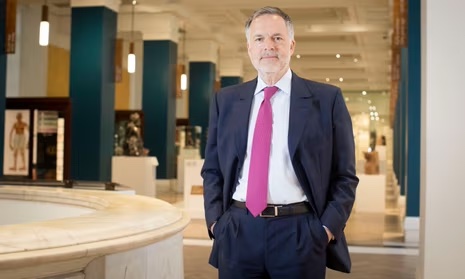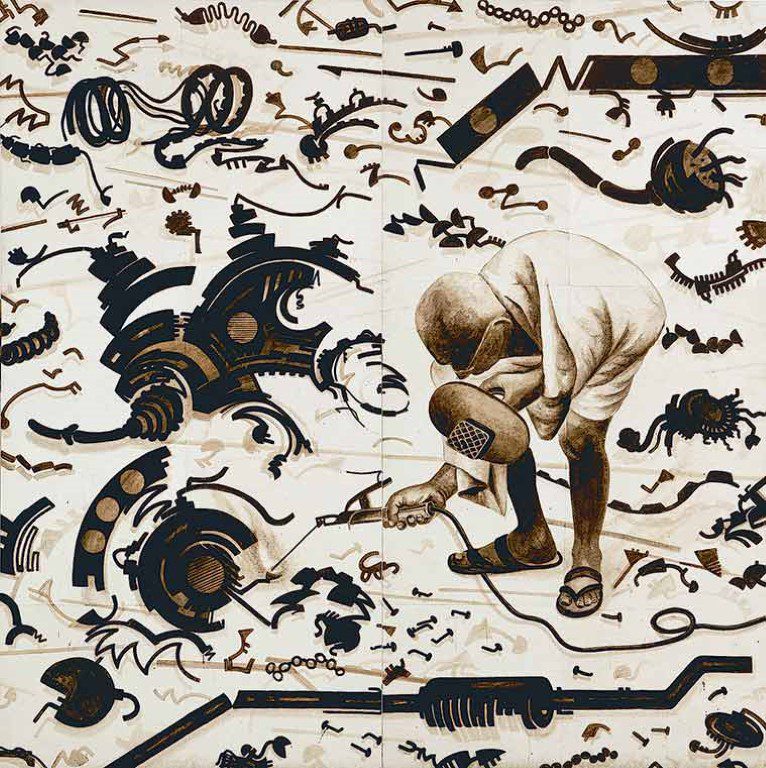In a surprising turn of events, Hartwig Fischer, the director of the renowned British Museum, has announced his immediate resignation, cutting short his expected tenure. Fischer’s decision comes as a response to the escalating controversy surrounding the theft of objects from the museum’s esteemed collection, purportedly by a senior curator employed at the institution.
Allegations of Unheeded Warnings
The turmoil surrounding Fischer’s departure was exacerbated by revelations from Ittai Gradel, a Dutch antiquities dealer, who asserted that he had informed the British Museum about the thefts approximately two years ago. Gradel claimed that his allegations went unaddressed, casting a shadow of negligence over the museum’s handling of the situation.
A Shift in Stance and a Sincere Regret
Initially, Fischer had asserted that he took Gradel’s allegations seriously. However, in a recent press statement, he altered his stance, acknowledging that the museum had not responded as comprehensively as it should have in 2021 when the warnings were issued. Fischer took responsibility for this lapse and expressed regret for his earlier remarks regarding Dr. Gradel.
Acknowledging the Gravity of the Situation
Fischer underscored the seriousness of the challenges faced by the British Museum, expressing his belief that the institution would eventually overcome these difficulties and emerge stronger. However, he admitted that his presence was inadvertently becoming a distraction, a circumstance he deemed undesirable.
A Gracious Exit with a Pledge for the Future
Throughout his seven-year tenure, Fischer worked alongside dedicated individuals who served the public with distinction. He characterized the British Museum as an extraordinary institution and stated that leading it had been the honor of his life. Fischer extended his resignation to the Chairman of the Trustees, agreeing to step down once an interim leadership arrangement was established by the board of trustees. The board accepted Fischer’s decision, sealing his departure from the institution.
Escalation of the Scandal and Staff Dismissal
The ongoing scandal gained momentum with the museum’s announcement on August 16 regarding missing, stolen, and damaged artifacts from its collection. This revelation led to an independent review of the museum’s security protocols and the subsequent dismissal of a staff member believed to be responsible for the incidents.
The Firing of Curator Peter Higgs and Subsequent Fallout
Reports identified the discharged staff member as Peter Higgs, a seasoned Greek antiquities curator, who allegedly absconded with over 1,500 items from the museum’s collection. Shockingly, some of these antiquities reportedly surfaced on the e-commerce platform eBay, with prices as low as $51. The fallout from Higgs’ dismissal rippled through the institution, shedding light on broader security and oversight concerns.
Deputy Director Steps Back Amidst Review
In a ripple effect, deputy director Jonathan Williams voluntarily stepped back from his regular duties in response to the ongoing independent review into the thefts. The move aims to maintain the integrity of the review process and avoid any appearance of impropriety.
Past Warnings and Unheeded Concerns
Revelations surfaced that Gradel had also reached out to Jonathan Williams, trustee Paul Ruddock, and board chairman George Osborne in 2021 with his concerns about artifacts from the museum appearing on eBay. Williams had responded via email, assuring Gradel that a thorough investigation had found no evidence of wrongdoing, and the museum’s collection remained secure.
Calls for Change and Repatriation
The scandal has prompted officials from Nigeria and Greece to renew their appeals for the repatriation of artifacts, including the Benin Bronzes and the Parthenon Marbles. Concerns about the security and safety of these culturally significant pieces have been rekindled by the ongoing controversy, amplifying the debate around repatriation.
Looking Forward: Commitment to Remediation
In the wake of Fischer’s immediate resignation and the broader scandal, board chairman George Osborne emphasized the institution’s dedication to rectifying the situation and addressing the issues at hand. Despite the tumultuous period, Osborne has not faced the same level of calls for his resignation as Fischer or Williams.
As the British Museum grapples with the fallout from the thefts and the departure of its director, the institution faces a pivotal moment in its history—one that will undoubtedly shape its future policies, procedures, and relationships with global heritage stakeholders.
Stolen Artifacts from British Museum Valued at Upto $63,800 Offered on eBay for Mere $51

Contributor





